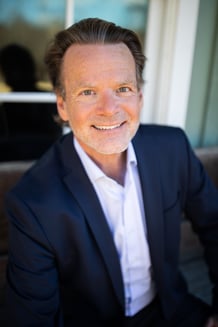As a firm, we strongly support the notion that diverse leadership is critical for organizational success. A discrepancy between the prevalence of women in the pipeline and absence of equal representation in advanced leadership roles, highlights the need for organizations to correct the strategic, structural, and cultural components which impact diversity, inclusion, and equity.
In Honor of Women’s History month, we are proud to feature interviews with TLD Group faculty where we explore their perspectives on female leadership and their experiences coaching female talent.
Interview with TLD Group Executive Coach- Gary Bradt
What female leader inspires you and why?
Susan Devore is the CEO of Premier, a healthcare innovation company. Susan's unique combination of self-awareness, business savvy and people sensitivity sets her apart from all other executives I have known. Susan is helping transform our medical system from the ground up. Under her guidance, Premier has grown from a collective purchasing organization into a data-sharing innovator improving clinical outcomes and saving lives. Susan is about results, not who gets the credit. She is humble, confident and intelligent. In short, Susan Devore is the best leader, male or female, that I have had the pleasure of working with during my thirty years as an executive coach.
All differences in how men and women lead are general, as no size fits all. In general, I find women are less concerned about who gets the credit and more concerned with solving the problem than are some men. Many women display the empathy that is so desperately needed in today's polarized world. Women are good listeners in general, sometimes to their detriment. At times they could be more assertive in advocating for themselves. In sum, we need more women at all leadership levels to reach our business and society's potential.
What do you think are the most significant barriers for female leaders attempting to advance and grow their careers to the top tier of an organization?
There are two barriers women must overcome to advance their careers. One barrier is systemic; the other is personal. The systemic obstacle is the bias shown toward women in many organizations that are still dominated by males at the org chart's top. The internal barrier is women sometimes hold themselves back. They may exaggerate what they perceive as faults and downplay their strengths. Organizations are responsible for tearing down the systemic wall, and women must recognize how powerful they are and go for it.
Happily, I see more women striving for advancement and believing they deserve higher levels of responsibility. Concurrently I see more organizations recognizing the value of having women in senior leadership positions and doing something about it. Progress is never as fast or pervasive as one might like, but there is progress. Another positive trend is more men realize they need to champion females to help them move up the leadership ladder. It is not enough to put a women's leadership program in place and leave it at that. Women need both females and males to advocate for the talented females in their ranks.
What is a leadership lesson that you have learned through your work with female leaders?
I have learned that most people want many of the same things from their leaders: their work to be valued and their voices to be heard. Women possess a unique skill set to meet these needs. That is why it behooves all of us to continue supporting women assuming leadership positions wherever and whenever we can.
What advice would you give to women with aspirations of reaching executive leadership roles?

Gary Bradt
Dr. Gary Bradt is a licensed clinical psychologist and founder of Bradt Leadership, Inc. which he started with his wife, Dr. Peggy Bradt, also a licensed clinical psychologist. For the last 30 years, they have coached senior executives across industries, including many hospital CEO's and executive teams. Gary is also a speaker on change, leadership, happiness, and well-being. He has worked with clients all over the globe including eBay, FedEx, Coca-Cola, Prudential, Johnson & Johnson, and hundreds more.



